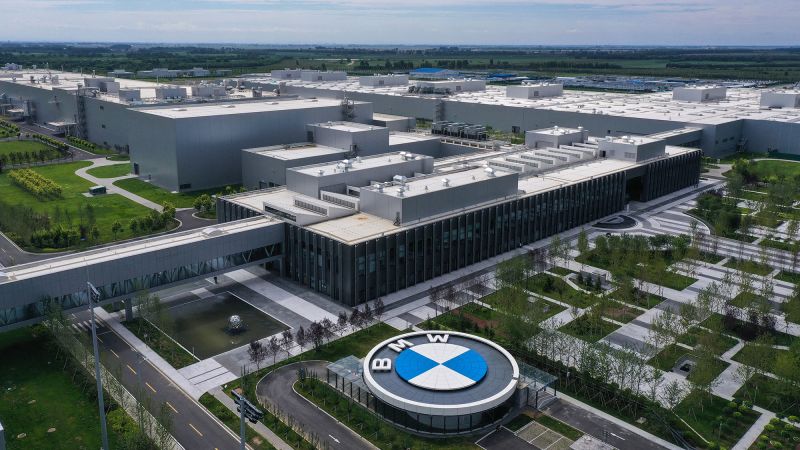BMW has lowered its profit margin forecast for the year due to sluggish demand in China and issues related to a braking system supplied by Continental. The carmaker’s shares dropped to a two-year low as a result. Delivery hold-ups linked to the braking system are expected to have a negative impact on sales in the second half of the year, affecting more than 1.5 million cars. While 1.2 million of these vehicles have already been delivered and can be checked for faults through over-the-air software, the remaining 320,000 are currently unable to be handed over to buyers.
As a result of the braking system issues, BMW anticipates incurring a significant amount in warranty costs in the third quarter. The company now expects its margin on earnings before interest and tax to be between 6% and 7% for 2024, down from the previous forecast of 8% to 10%. In a separate statement, Continental announced that only a small portion of the braking systems it supplies to BMW would need to be partially replaced due to a possibly impaired electronic component. BMW also highlighted ongoing weak demand in China, further adding to challenges faced by automakers in the country.
The car industry in China has seen a downturn, despite government stimulus measures aimed at boosting consumer sentiment. BMW’s struggle with demand in the world’s largest auto market is part of a larger trend affecting automakers globally. Continental’s acknowledgment of potential issues with the braking system components further underscores the challenges faced by car parts suppliers in ensuring products are up to standard. The impact of these challenges is being felt throughout the supply chain and could have lasting consequences for BMW and other companies in the industry.
The reliance on over-the-air software for identifying faults in delivered vehicles highlights the increasing technological integration in the automotive sector. BMW’s ability to remotely diagnose and address issues in their cars demonstrates their commitment to leveraging new technologies for customer service and support. However, the need to temporarily withhold delivery of a significant number of vehicles due to braking system concerns serves as a reminder of the risks associated with complex supply chains and technological dependencies in the industry.
BMW’s decision to revise its profit margin forecast underlines the financial repercussions of these challenges and the uncertainty surrounding future earnings. The carmaker’s lower-than-expected margin projections for 2024 reflect a cautious approach to navigating the current market conditions and addressing potential disruptions in production and sales. The ongoing impact of these issues on BMW’s financial performance and reputation remains to be seen, as the company works to address the braking system problems and maintain customer confidence in its brand amidst a challenging business environment.


